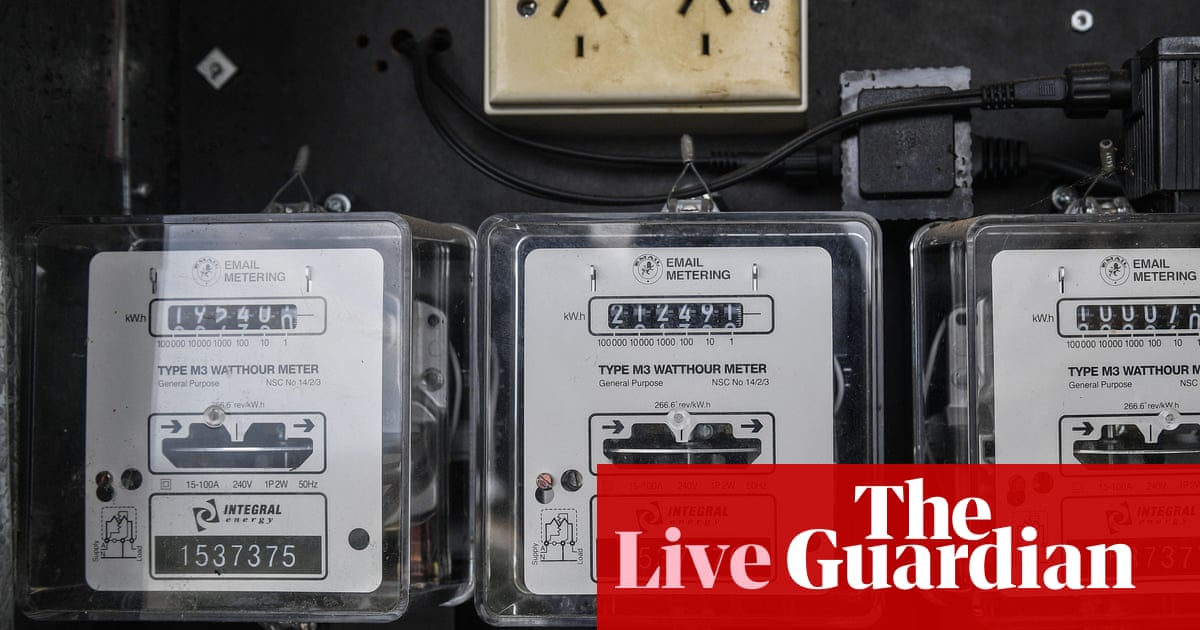Social media report has nuanced findings for teens
Our technology reporter Josh Taylor has an exclusive report today on a large survey of 17,480 young people across Australia aged between 15 and 19.
The survey, carried out by Mission Australia, comes amid the public debate over restricting access to social media for people aged under 16.
The findings are nuanced with a link between excessive use of phones and poorer mental health outcomes. But moderate users report being in better shape than those using their devices for only one hour a day.
Read Josh’s full report here:
Half of Australia’s big four banks are predicting a cut in interest rates when the Reserve Bank next meets following better-than-expected inflation numbers, Australian Associated Press reports.
Despite predictions of inflation remaining steady, headline inflation for Mayfell to 2.1%from 2.4% the previous month.
The fall was driven largely by a drop in the cost of fuel as well as rental prices.
Trimmed mean inflation, which removes volatile price movements, also dropped from 2.8% to 2.4%.
The figures have bolstered predictions of a cut when the Reserve Bank hands down its next cash rate decision on 8 July.
The Commonwealth Bank has joined with NAB in forecasting the next cut to be in July, while Westpac and ANZ predict a lowering of the cash rate in August.
Commonwealth Bank economistHarry Ottleysaid the May data had made a rate cut in July all but certain, with both inflation sets being in the Reserve Bank’s target range of between two and three per cent.
Anglicare Australia is calling for urgent action to address rising energy debt as a new report shows a full-time minimum wage worker has just $33 left after paying for rent, food and transport.
Anglicare Australia’s 2025 cost of living index also found that a single parent on the minimum wage has just $1 left, even with government assistance. A family with two full-time workers and two children has only $5 remaining each week.
Anglicare Australia’s executive director,KasyChambers, said the results were “bleak” and many were left with nothing for energy bills.
We’re seeing more people trapped in energy debt. They are skipping meals, going without heating, and falling behind on bills they’ll never be able to repay.
Too many households are falling behind and staying behind. Over 330,000 people are struggling to pay back more than $300 million in energy debt – and the number of people with debts over $3,000 is surging.
Chambers said people were forced into payment plans they could not sustain.
They carry energy debt from one bill to the next with no chance of catching up, even though energy retailers are making record profits.
That’s why we’re calling for energy debt relief for people in hardship, and better regulation to stop the gauging of energy costs and helps people to start afresh.
Good morning and welcome to our live news blog. I’mMartin Farrerwith the best of the overnight stories and thenRafqa Toumawill take the helm.
Half of Australia’s big four banks are predicting a cut in interest rates when the Reserve Bank meets a week from Tuesday, following better-than-expected inflation numbers yesterday. It would ease pressure on household budgets and comes as Anglicare calls for action to stop the poorest slipping into more debt. More coming up.
Plus: Australian teenagers who spend between one and three hours on social media a day report similar or better mental health outcomes compared with those on for less time, a new survey shows. Those who spent more than three hours said they had less control over their lives, suggesting that moderate use is the key to wellbeing. More coming up.
